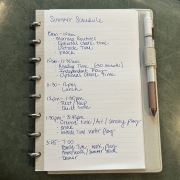What is a Gap Year and Why Should I be Aware of it?
A term you may not have heard of is “gap year.” If you have teenagers, you may want to consider putting this term on your radar for your child to consider. Taking a gap year means a high school graduate takes a year off of academic training before pursuing additional training or education. If a graduate in May of 2024 takes a gap year, they wouldn’t pursue additional education until the summer or fall of 2025.
While this may not be a traditional approach to pursuing post-high school education, it is a trend that is becoming more popular. This is likely because they are many benefits of taking a gap year, which studies support. In fact, many universities look at gap years favorably on their applications and even provide university-sponsored gap year programs.
Benefits of Taking a Gap Year After High School:
- It prevents burnout. By taking a year off of academic work, it allows young adults to have a time to reset, rest, and refocus.
- Gap years allow time for growth, maturity and learning new skills. The brain doesn’t stop growing until mid-20’s. Asking a young adult to choose a degree and career path before their brain has fully developed may be setting them up for making decisions their maturity level isn’t quite ready for. It also provides time for practical on-the-job skills to be developed.
- It allows for exploration. By having a year to learn more about different professions, shadow various jobs, and try their hand in various fields of work allows young adults to solidify their decision making.
- Gap years provide rejuvenation and motivation. After spending a year off, students can return to academic and career training with motivation and clarity.
There are also potential drawbacks to taking a gap year, which should be considered too.
Drawbacks of Taking a Gap Year:
- Without a plan, young adults could remain unmotivated. Gap years work best if they have a clear goal and plan in place. Young adults who don’t have planned intentions for the gap year or a definite time line in place can potentially just be wasting time and putting off future training. By creating a plan, you can avoid aimlessness.
- Once there’s been a break from academic work, it can be hard to return to it. A good goal for the gap year would be to find a career path that brings you interest. When you do this, you’ll enjoy learning about this profession and feel more interested in new coursework.
Taking a gap year is worth considering and discussing with your teenage child as they consider plans for their future. A good question to lead with would be “What do I intend to accomplish by taking a gap year?” A pros and cons list is always helpful too! Lastly, consider this: what parameters need to be in place for the gap year to make it most successful?
Gap years aren’t for everyone. Each person has unique plans, interests, goals, and needs, which will impact if a gap year would be helpful or not.
















